Learning Assessment
As an International Baccalaureate school, we use a variety of assessments to assist the learning process. From the IB web site:
“Assessment is an important part of each unit of inquiry as it both enhances learning and provides opportunities for students to reflect on what they know, understand and can do. The teacher’s feedback to the students provides the guidance, the tools and the incentive for them to become more competent, more skillful and better at understanding how to learn.”
- Formative assessments help the student – and the teacher – understand the concepts, how much progress they are making, and what they need to do in order to improve.
- Summative assessments are a final assessment of learning, for example at the end of a unit of work, or at the end of the school year. Teachers use rubrics to assess student learning, and they share those rubrics with the students at a grade-appropriate level so students know what is expected of them.
Teachers give grades using the rubric so students can see exactly where they need to focus for improvement.
Performance
While International School of Portland limits its use of standardized testing, our 2nd to 5th Graders take the Measures of Academic Progress (MAP) assessment to measure their proficiency levels in English Reading, Mathematics, and English Language Usage (Grammar, Mechanics, Spelling). MAP is administered by NWEA, and is used by schools and districts in 145 countries.
For some comparison, here are ISP scores alongside statewide test scores for elementary students in Oregon. Nationwide, public school 4th graders take the National Assessment of Educational Progress (NAEP). The MAP scores and NAEP scores are closely aligned. Oregon public school 3rd and 5th grade students also take the Oregon Statewide Assessment System (OSAS), which also test similar standards. English proficiency is only given as one indicator on the state tests, not two like on the MAP test, so the comparisons are not direct. NOTE: The Oregon Department of Education does not test 2nd grade.
ISP’s math scores are particularly notable, since our students learn mathematics in their track language, and these tests were administered in English.
______________________________


For more information, please visit: National Standards and International Baccalaureate.
